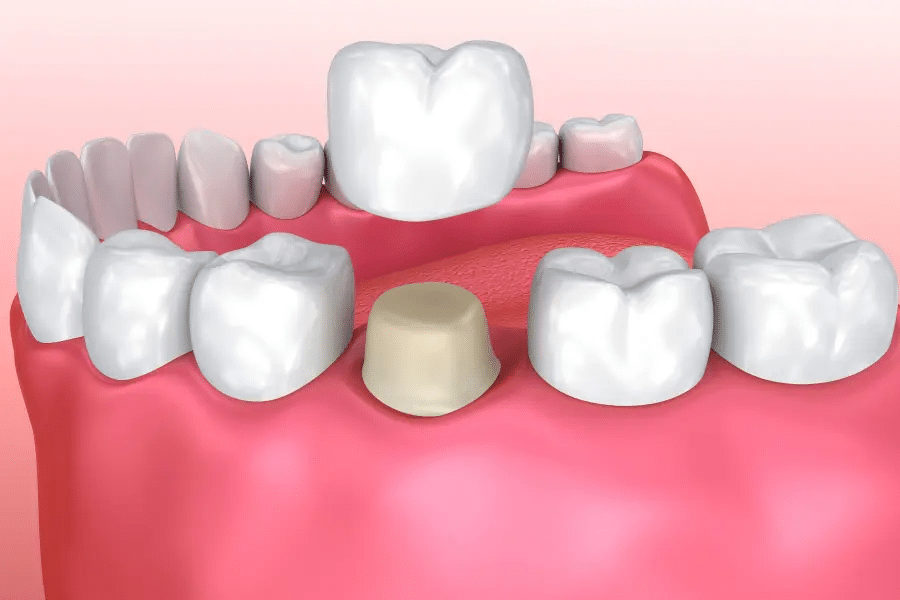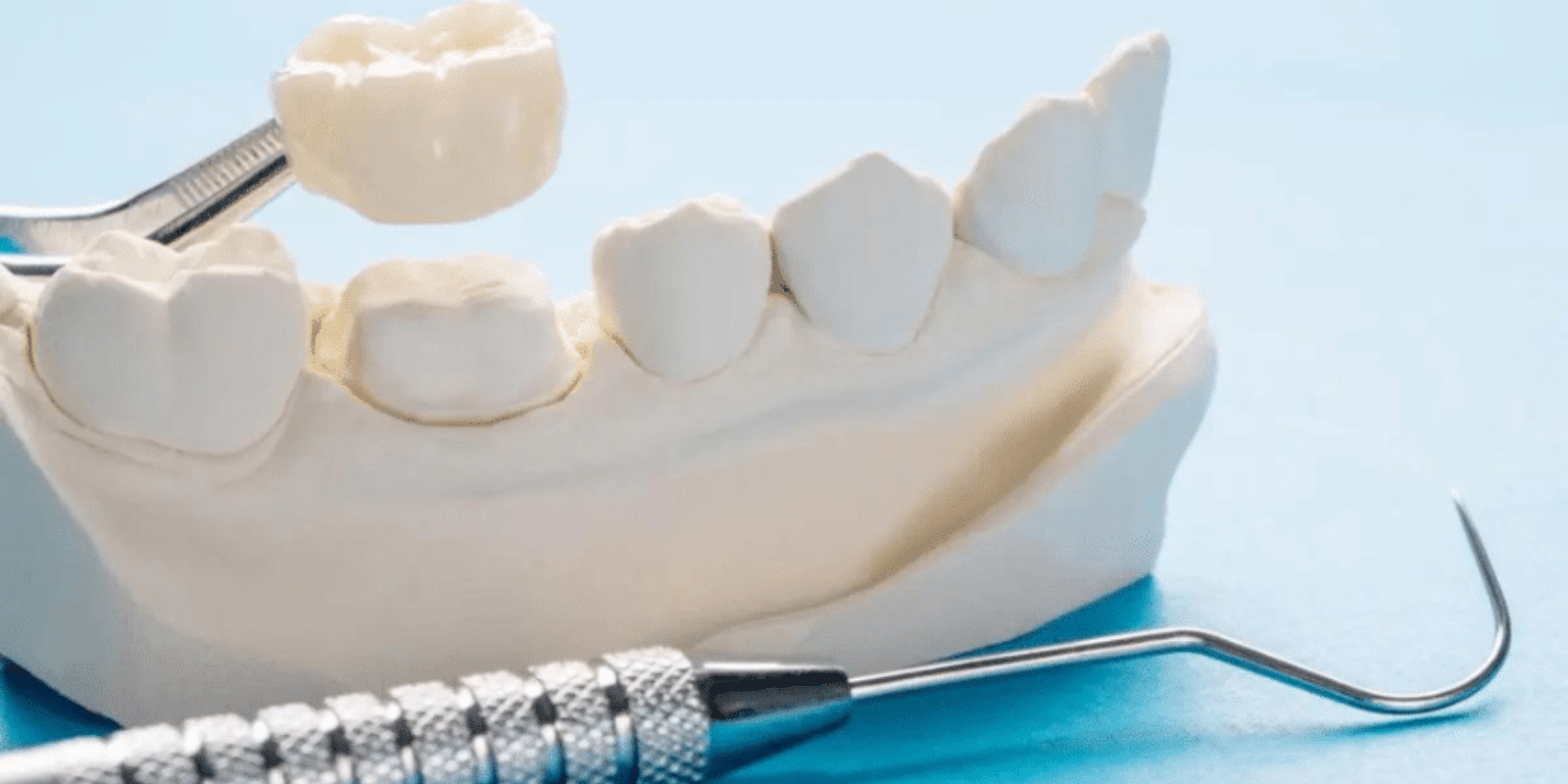How Long Do Dental Crowns Last? Tips for Longevity and Care
Dental crowns are a cornerstone of restorative dentistry, offering a durable solution for damaged or weakened teeth. They play a vital role in preserving tooth function and enhancing aesthetics. Understanding the lifespan of dental crowns and how to care for them can help ensure they serve you well for many years. In this comprehensive guide, we’ll explore the longevity of dental crowns, factors that affect their lifespan, and essential tips for maintaining their health.
What Are Dental Crowns?
Dental crowns are custom-made caps that cover the entire visible portion of a tooth. They are designed to restore teeth that are severely damaged, decayed, or weakened. Crowns can be made from various materials, each offering different benefits:
- Porcelain: Known for its natural appearance, making it ideal for front teeth.
- Ceramic: Durable and provides a natural look, often used for front and back teeth.
- Metal: Includes gold or other metal alloys, praised for their strength and durability.
- Porcelain-Fused-to-Metal (PFM): Combines the strength of metal with the aesthetics of porcelain, suitable for both front and back teeth.

Average Lifespan of Dental Crowns
The lifespan of a dental crown depends on several factors, including the material used, the patient’s oral hygiene, and lifestyle choices. On average, dental crowns can last between 5 to 15 years. Here’s a breakdown of the typical longevity based on material:
- Metal Crowns: Typically last 10 to 15 years or more due to their durability and resistance to wear.
- Porcelain Crowns: Generally last 5 to 15 years, offering a balance between aesthetics and strength.
- Ceramic Crowns: Usually last around 10 to 15 years, providing good durability with a natural appearance.
- PFM Crowns: Last 10 to 15 years, combining the strength of metal with the visual appeal of porcelain.
Factors Affecting Crown Longevity
Several factors influence how long your dental crown will last. Understanding these can help you take proactive steps to maximize the lifespan of your crown.
1. Material Quality
- Durability: The quality of the material used for your crown affects its durability. High-quality materials tend to last longer and resist wear and tear better.
- Fit and Precision: A well-fitted crown made from high-quality materials is less likely to experience issues such as chipping or loosening.
2. Oral Hygiene
- Brushing: Regular brushing with fluoride toothpaste helps prevent plaque buildup and gum disease, which can affect the health of your crown and the underlying tooth.
- Flossing: Daily flossing removes food particles and plaque from between your teeth and around the crown, reducing the risk of decay and gum problems.
3. Diet and Eating Habits
- Avoid Hard Foods: Chewing on hard items like ice or hard candies can damage your crown.
- Limit Sticky Foods: Sticky foods like caramel can pull at the crown and potentially loosen it or cause damage.
4. Lifestyle Factors
- Teeth Grinding: Bruxism or teeth grinding, can wear down crowns over time. Using a nightguard can help protect your crowns from excessive force.
- Habits: Avoid using your teeth as tools to open packages or bite down on non-food items, as this can lead to damage.
5. Overall Tooth Health
- Underlying Tooth Condition: The condition of the tooth beneath the crown is crucial. If the tooth becomes compromised or decayed, it can affect the longevity of the crown.
- Gum Health: Healthy gums support the longevity of your crown. Gum disease or inflammation can compromise the crown’s fit and function.
Tips for Extending the Lifespan of Your Dental Crown
Taking care of your dental crown can significantly impact how long it lasts. Here are practical tips to help you maintain your crown and ensure its longevity:
1. Maintain Excellent Oral Hygiene
- Brush Regularly: Brush your teeth twice a day with fluoride toothpaste. Be gentle around the crown to avoid causing irritation.
- Floss Daily: Use dental floss or interdental brushes to clean around the crown and between teeth. This helps prevent plaque buildup and maintains gum health.
- Use Mouthwash: Incorporate an antimicrobial mouthwash into your oral hygiene routine to reduce bacteria and keep your mouth fresh.
2. Avoid Harmful Foods
- Steer Clear of Hard Foods: Avoid chewing on hard foods such as ice, nuts, or hard candies that can crack or damage your crown.
- Limit Sticky Foods: Foods like caramel and taffy can stick to your crown and may cause it to come loose or damage it over time.
3. Protect Against Teeth Grinding
- Wear a Nightguard: If you grind your teeth at night, a custom-made nightguard can protect your crowns from the pressure and wear caused by grinding.
- Manage Stress: Stress reduction techniques can help minimize the occurrence of teeth grinding.
4. Avoid Using Teeth as Tools
- Use Proper Tools: Avoid using your teeth to open packages or bite down on non-food items. This practice can damage your crown and your natural teeth.
5. Regular Dental Check-Ups
- Schedule Regular Visits: Visit your dentist regularly for check-ups and cleanings. Your dentist will examine your crowns and ensure they are in good condition.
- Professional Cleanings: Professional cleanings help remove plaque and tartar that can affect your crown and overall oral health.
6. Address Issues Promptly
- Monitor Your Crown: Be vigilant for any signs of problems with your crown, such as discomfort, looseness, or visible damage.
- Seek Professional Help: If you notice any issues, contact your dentist as soon as possible. Early intervention can prevent more significant problems and extend the life of your crown.
What to Do if Your Crown Needs Replacement
Even with the best care, a dental crown may eventually need replacement. Here’s what to expect if your crown needs to be replaced:
1. Evaluation
- Assessing the Condition: Your dentist will evaluate the condition of the existing crown and the underlying tooth to determine the need for replacement.
2. Removal
- Careful Removal: The old crown is carefully removed, and any remaining cement or debris is cleaned from the tooth.
3. Tooth Preparation
- Tooth Preparation: The tooth is prepared for a new crown, which may involve additional treatment if the underlying tooth has changed or deteriorated.
4. New Impressions
- Custom Fit: New impressions are taken to create a custom-fit crown that matches the contours of your tooth and bite.
5. Temporary Crown
- Protection: A temporary crown may be placed while the new crown is being manufactured to protect the prepared tooth.
6. Fitting and Cementing
- Final Placement: Once the new crown is ready, it is fitted and cemented onto the prepared tooth.
Dental crowns are a valuable tool in restorative dentistry, offering both functional and aesthetic benefits. With proper care and maintenance, you can extend the lifespan of your crowns and enjoy their benefits for many years. By practicing good oral hygiene, avoiding harmful foods and habits, and attending regular dental check-ups, you can ensure the longevity of your dental crowns and maintain a healthy, beautiful smile.
If you have any concerns about your dental crowns or need guidance on maintaining them, consult your dentist for personalized advice and support. Taking proactive steps to care for your crowns will contribute to their long-term success and your overall oral health.


